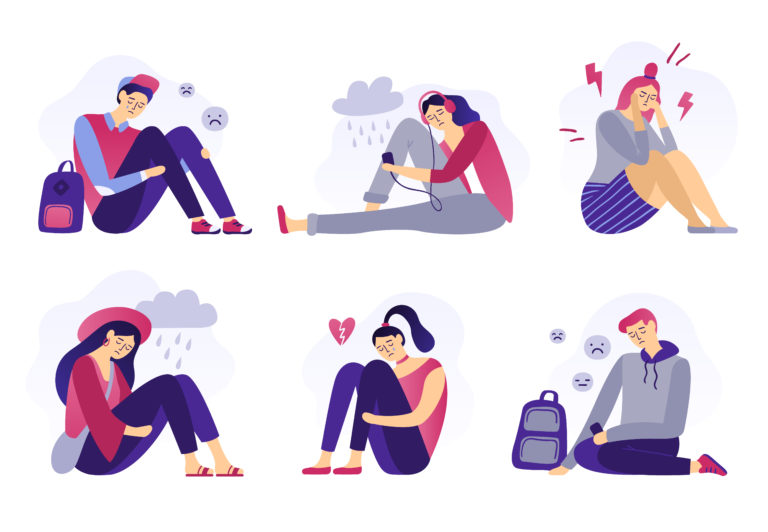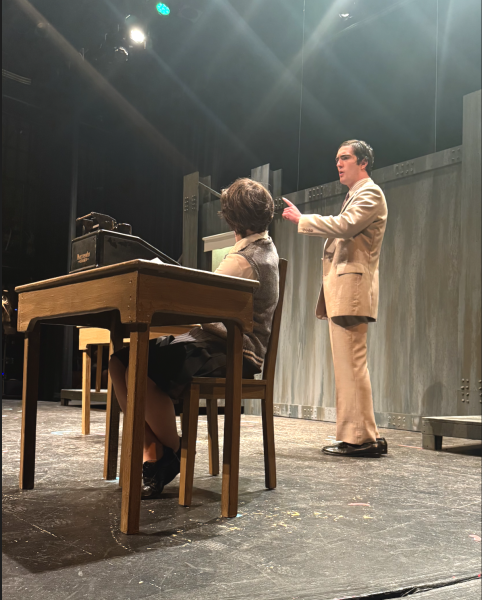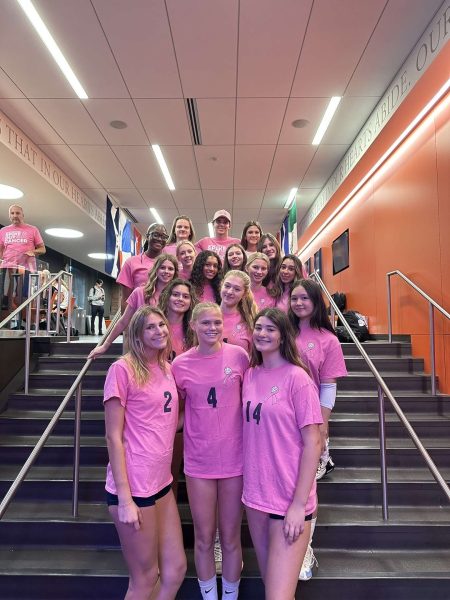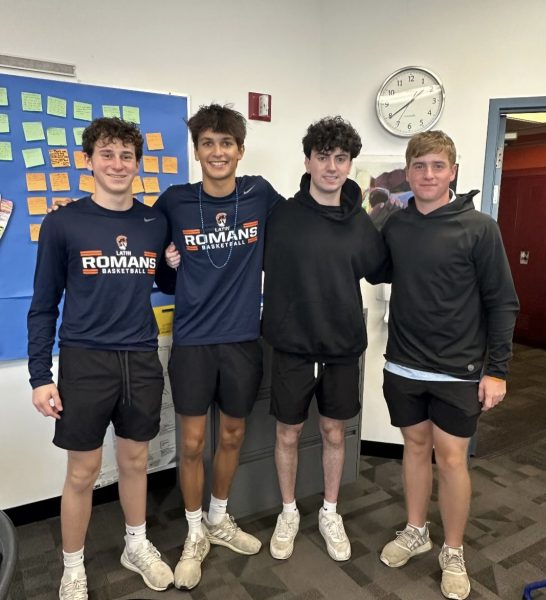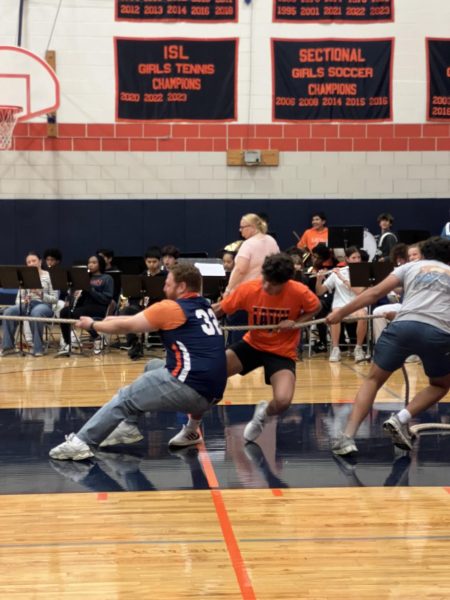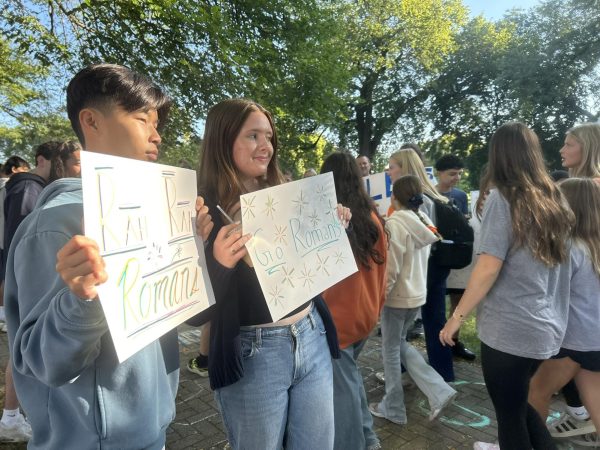Student Wellness Survey: How Latin is Addressing Mental Health
The yearly student wellness survey gauges the current mental health of the Latin community.
After nearly 19 months of a global pandemic, mental health has never been more essential to discuss. This year’s annual student wellness survey—which all Upper School students had time to complete during advisory on October 1—came at an especially momentous time with the new school year revving up.
With questions surrounding “academic functioning and stress, school climate and bullying, mental health, social and emotional wellness/supports, substance use, and student demographics,” the student wellness survey, which was completely anonymous, alerted the school to wellness patterns that might otherwise be overlooked.
Anneliese Kranz, counselor for grades 10 and 12, acknowledged how mental health has suffered during the pandemic. “This survey was created as an effort to get a temperature check on the wellness of our student population coming out of a challenging year,” she said.
According to data collected by the American Psychological Association (APA) earlier this year, 81% of teenagers ages 13 to 17 felt their stress levels increase during the pandemic. Some students reported feeling less stressed during remote learning—when late starts and self-paced assignments were the norm—but this year feels busier than ever now that in-person learning and extracurriculars have fully resumed.
Although this year’s survey was noticeably more succinct than in previous years, students will have a chance to provide more detail next year. “We offer a more comprehensive survey to students every three years,” said Ms. Kranz. She added, “Survey results will be shared with appropriate school stakeholders, as necessary.”
Despite this, some students thought the survey was perhaps too concise. Junior Amanda Valenzuela said, “I didn’t like that there weren’t any opportunities to write in our own answers, because it limited what we were able to say about specific aspects of the school.”
Relying on generic answer choices instead of written feedback, it seems, doesn’t always encompass how a student truly feels.
Junior Madison Vanderbilt echoed Amanda’s point. “Although I appreciated finally being able to respond about my health this year, I feel like a crucial element that described my high school career was missing: the COVID-19 pandemic. At some point, I still feel like I’m stuck as that March 2020 freshman.”
As for the anonymity of this survey, Ms. Kranz touched on the benefits of being incognito when answering personal questions, noting, “Obviously, there is no way we will know if a student did not answer the questions honestly, but our goal was to create a survey where students would answer honestly.”
Both Amanda and Madison mentioned how they felt comfortable answering questions since their identities were fully protected, pointing out how the anonymity factor was made very clear.
Disaggregating data—as with any survey—is vital to distinguish trends, whether positive or negative. “Data will be shared with appropriate student support team members, school leaders, or faculty,” said Ms. Kranz. “If applicable, interventions, programming, and/or psychoeducational opportunities will be recommended or initiated to meet the needs we are seeing.”
Although anonymous surveys make it easier for students to answer honestly, interventions cannot be made on an individual basis. Instead, students must seek support themselves as needed, which some might feel apprehensive about.
A different Upper School student—who wishes to remain unnamed—explained the vulnerability that comes alongside reaching support. “I don’t usually talk [about my emotions] with other people because it’s easier to keep them inside,” they said.
Additionally, according to CDC data, teenage hospital visits for potential suicides have soared during lockdown, with recent data trending over 20 percent higher compared to pre-pandemic times. The largest spike was among 12 to 17-year-old girls.
While suicidal thoughts are only one aspect of mental health, providing a safe space for students to answer questions transparently can work to mitigate any unwelcomed stigma.
Jane Knoche, counselor for grades 9 and 11, emphasized why taking care of oneself is necessary. “There is a misconception that self-care needs to be a long meditation or yoga session,” she said. “Self-care can be as simple as going for a walk, showing gratitude, or being compassionate with yourself.”
Students are encouraged to visit the Upper School Counseling page on RomanNet for helpful strategies relating to self-care. “We are posting coping strategies every Wednesday under the heading ‘Wellness Wednesdays,’” said Ms. Knoche.
Sophomore Payton Rice agreed that prioritizing wellness is crucial, saying, “Self-care is important to me because it helps maintain positive mental health and it keeps me from spiraling.”
As for future surveys, some students said they would welcome the opportunity to provide more in-depth feedback. “I would say that written feedback is imperative to accurately represent the student body’s views,” said Amanda. “If Latin really wants to know about the well-being of their students, then leaving space for students to [give a mental health update] is a must.”
Similarly, Madison thought the survey had slight room for improvement, suggesting more “fill in the blank” or free response questions. “Next year,” she said, “I would love to see more questions on how certain Latin factors make you feel above-stress levels.”
While students will assuredly partake in a more in-depth survey next school year, the consensus is that an opportunity to give more detailed feedback would always be beneficial.
Both Upper School counselors, Ms. Knoche and Ms. Kranz, remain available to support the Latin community, and their doors are open to all. They can be found in rooms 418 and 420, respectively.

Will Baiers (’23) is a senior at Latin and could not be more excited to serve as a Features Editor. Will has a passion for spotlighting current events...














































